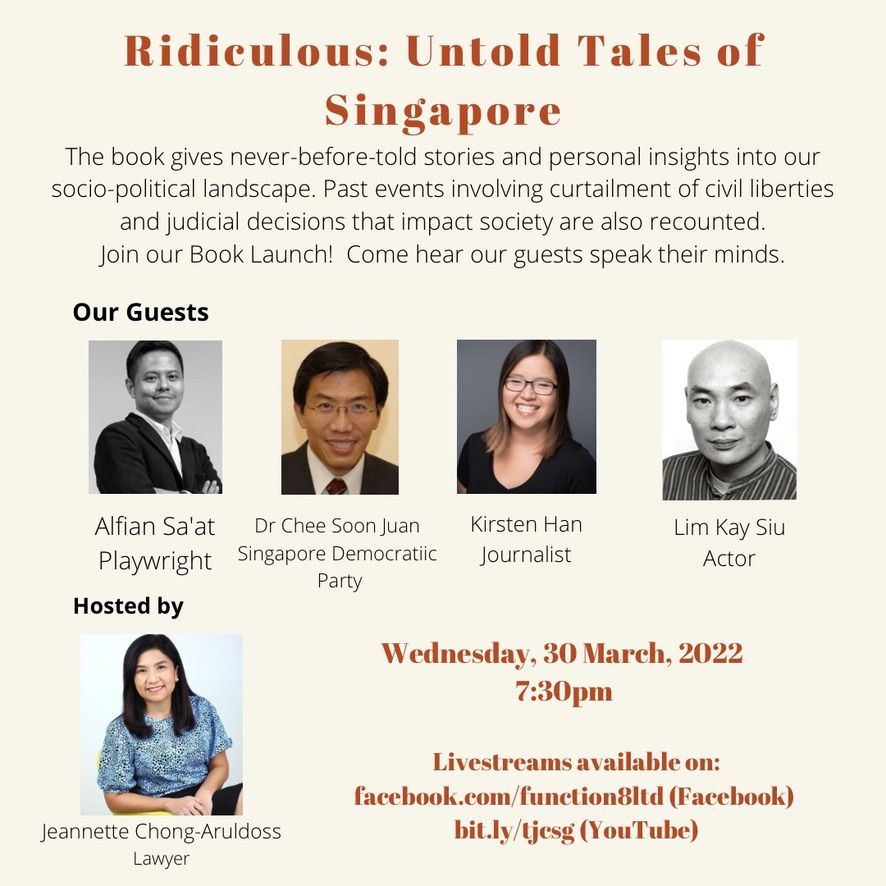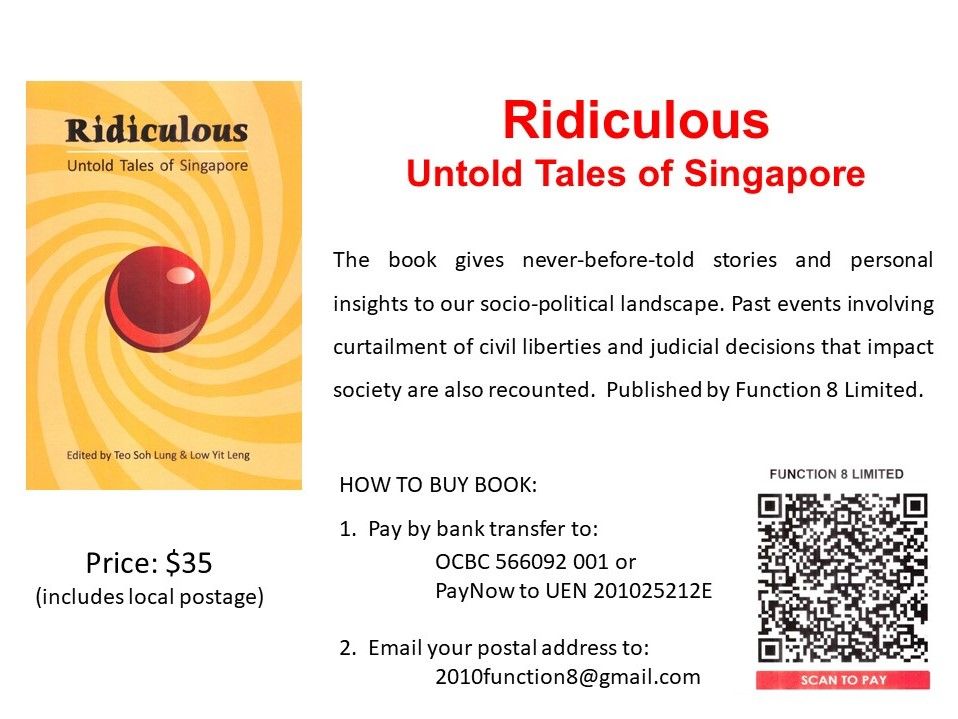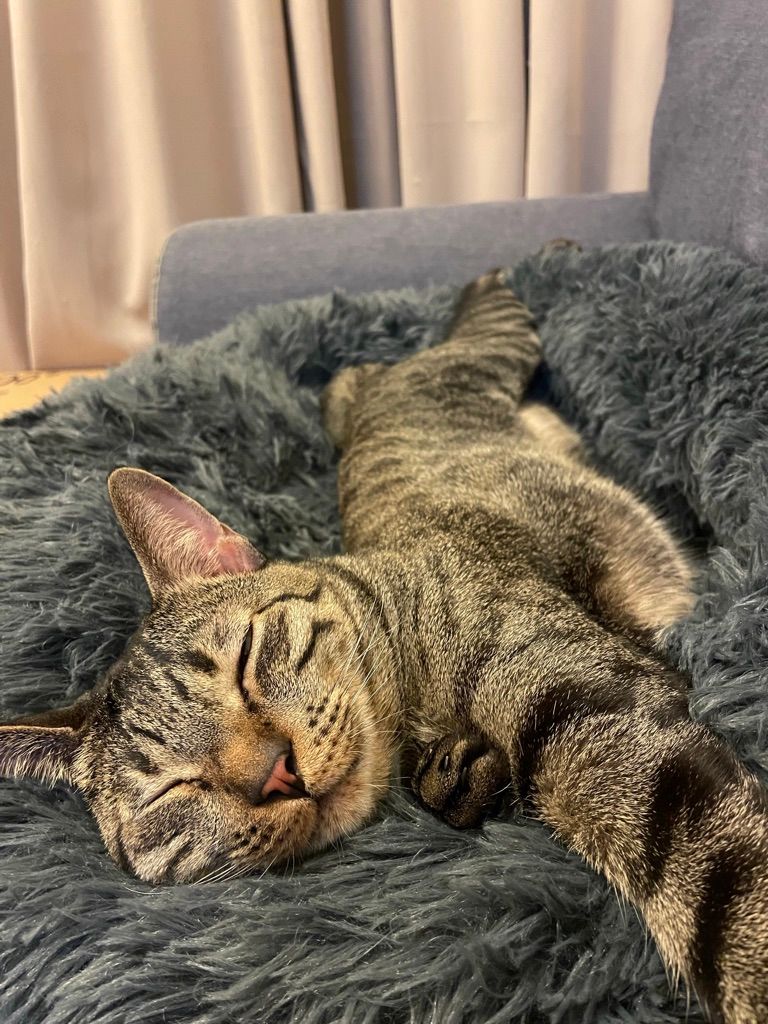Is it me, or are the weeks actually going by more quickly than ever? I feel like I was writing last week's wrap yesterday!
Covid restrictions loosen, but what about migrant workers?
This coming week, most people in Singapore are going to feel the loosening of Covid restrictions: we'll be able to hang out in groups of up to 10, and won't have to wear masks outdoors anymore. Vaccination-differentiated measures will remain in place, but F&B outlets don't have to do full checks anymore for tables of five or fewer diners. Travelling will also get easier as the borders reopen to all fully vaccinated travellers with a pre-departure test.
This comes as a relief, but what's not changed?
.@straits_times 's Tim Goh just asked the million dollar question at today's MTF conference - if contact tracing is still being done & what of TraceTogether. Health Min Ong Ye Kung says that contact tracing is automatically done by TT, so the qn pertains more to SafeEntry 1/x
— Isabelle Lim (@IsabelleLimKopi) March 24, 2022
Despite the loosening of these restrictions, it doesn't look like TraceTogether is going anywhere. The government says that TraceTogether/SafeEntry is the easiest way to check on one's vaccination status, but F&B outlets might be able to relax a little with the SafeEntry since the system is going to shift towards random spot-checks rather than requiring eateries to go through the full vaccination-differentiated checks with every diner. The question that doesn't seem to have been answered, though, is why we're still all having to carry around Bluetooth trackers?
While most of us feel like things might finally be going back to "normal", this is still not the case for hundreds of thousands of migrant workers. What we're seeing now is the institutionalising of segregation. From 1 April, migrant workers will no longer need to apply for exit passes to go to recreation centres — spaces set up just for migrant workers — and they can also gather in groups of up to 10 within their dormitories. But quotas still remain in place if they want to "visit the community": 15,000 will be allowed on weekdays, 30,000 on weekends and public holidays. For perspective, 30,000 is around 10% of the number of migrant workers who have been largely confined to their dormitories for almost two years now.
98% of the migrant workers in dormitories have been vaccinated. The number of Covid cases in dormitories are lower than the number of cases that we are reporting outside the dormitories. Yet only a limited number of workers are allowed to "visit" the community, clear signalling that they are not seen as being part of the community. Apart from people incarcerated in our prisons, no other segment of the population is segregated from the rest in this way.
Last year, I wrote this special issue on how migrant workers have been treated during the pandemic, arguing that we don't seem to have learnt anything from Singapore's largest humanitarian crisis. Sadly, this is still true today.
How do (some) Singaporeans view China?
The Straits Times is taking a closer look at Singaporeans who identify themselves as being pro-China. It's timely reporting since we've been seeing many Singaporeans sharing Russian and Chinese state media talking points on the war in Ukraine (which prompted me to write this special issue, with the help of readers of the newsletter).
It's a complex issue involving ethnicity and culture and business and all sorts of other factors, and doesn't automatically mean that "pro-China" Singaporeans are shills for Chinese Communist Party propaganda. But it's still something that we need to pay attention to, especially when CCP narratives often try to tie ethnicity, identity, culture and heritage to their own political interests — I blogged about this last year — which is something that could affect Chinese Singaporeans. Amid the deluge of information, wading through propaganda and news can also be quite tricky.
So how? Last year, the government claimed that FICA would be the answer to foreign influence operations. I still don't think that's right. On Tuesday, I wrote a Twitter thread on my thoughts, and would be happy to hear yours!
Very much worth reading: this Academia.sg piece on the problems with approaching matters of principle as an exercise in picking a side:

"It will not help us if, instead, every discussion about the conduct of foreign powers degenerates into a pointless parlour game of who’s better and who’s worse, or as the Chinese phrase goes, “compare rottenness” (比爛 bǐ làn). This “whataboutism” is exactly what we observe in many conversations about Ukraine. Getting sucked into endless debates about whether the US is better or worse than its rivals impedes reasonable thinking, because it does not allow any situation to be assessed on its own merits. Agreeing with the US on supporting Ukraine against Russia need not mean support for the US on the Israel-Palestine issue. And, wherever the US stands in our esteem relative to other giants should not determine Singaporeans’ own position on its policies."
An "overwhelming" response to REACH's survey
A few days ago, I was alerted to a REACH survey collecting people's views on Section 377A and LGBT issues in Singapore. I filled it out, but it was really not a very well-designed survey at all...
seriously wtf are these questions pic.twitter.com/OYC6C65IhC
— Kirsten Han 韩俐颖 (@kixes) March 22, 2022
Why did it assume that I only know one queer person? Also, of what value is my opinion on whether said queer person is living a good life in Singapore or not? What does that matter, compared to lived experiences of LGBT people in Singapore?
It was really not very clear where they are going with this survey. In any case, it closed not too long after: REACH says they received over 30,000 responses. It's not clear at this point who formed the bulk of the respondents — there were concerns that anti-LGBT groups would have mobilised to try to spam the survey, which also didn't have measures in place to prevent someone from submitting more than once.
Got some more...
💀 The state's attempts to hang people continues: on Thursday, I heard from the family of Abdul Kahar bin Othman, on death row for drug offences, that his execution has been scheduled for 30 March. This needs to stop. Please write to your MP, to Prime Minister Lee Hsien Loong, and to President Halimah Yacob and let them know your views on the death penalty. You can use the Singapore Government Directory to get the relevant contact details.
🔪 A police officer shot a man dead on Wednesday. The man had been wielding a knife and had refused to drop it.
👮🏻♀️ A Central Narcotics Bureau officer has been found guilty of voluntarily causing hurt and extorting a confession from an individual he was interrogating.
🗝 Jolovan Wham wrote this piece on why it's important for Singaporeans to care about prison conditions and the rights of people who have been incarcerated.
Tune in!


Thank you for reading this week! As always, help me get the word out by sharing this newsletter. 🥰 Francis Begbie (👇🏼) thanks you!


